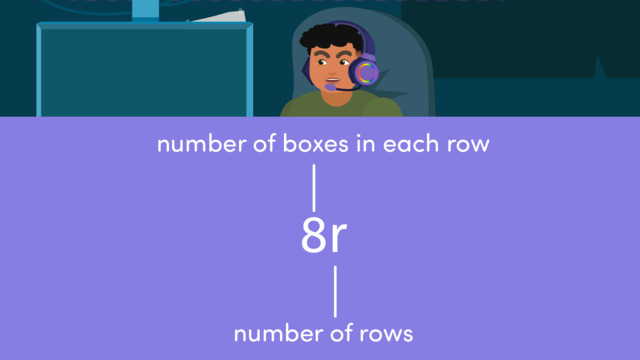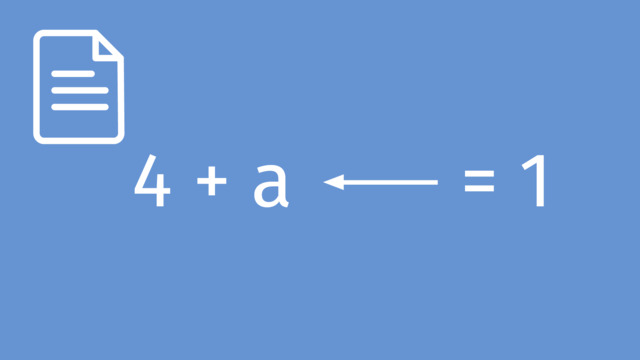What is a variable?
Learning text on the topic What is a variable?
Understanding Variables in Algebra – Definition
When embarking on an adventure or solving a riddle, the unknown elements can be the most thrilling. In algebra, the unknowns are represented by variables. These are symbols that stand for numbers that are not yet known or can vary. It's like having a box where you can put any number that fits the situation.
Variables are letters or symbols used in mathematics to represent unknown quantities or quantities that can change. They are essential in creating algebraic expressions and equations that model real-world scenarios.
Rules for Using Variables
- Variables can represent any number, not just whole numbers.
- You can perform the same operations on variables as you can with numbers (addition, subtraction, multiplication, division, powers and so on).
- Variables can be combined with other variables and numbers to form expressions and equations.
Variables in Algebra – Example
Let's imagine that Cello and Jessica are planning the length of their hikes each day. They decide that the distance they will hike each day will be represented by the variable $d$. If they hike $d$ miles each day and plan to hike for $4$ days, the total hiking distance can be expressed as:
$4 \cdot d$
If they decide that "$d$" is equal to $3$ miles, the total hiking distance for the trip would be:
$4 \cdot 3 = 12$ miles
This simple algebraic expression allows them to adjust their plans by changing the value of $d$ to suit their energy levels each day.
You might have noticed a new symbol in the last example. The $\cdot$ symbols are used in algebra to represent a multiplication sign as often the letter $x$ is used to represent a variable and this can get confusing if we have lots of $x$’s and multiplication signs. Hence why we have the $\cdot$ symbol to use as well.
Variables in Algebra – Guided Practice
Let's guide Jessica and Cello as they calculate the amount of trail mix they will need for their trip. They estimate that each camper will need "$m$" ounces of trail mix per day.
Now, if we know that each camper needs $6$ ounces of trail mix per day, we can substitute this value into our expression:
Variables in Algebra – Application
Now it's your turn to help our campers. They want to calculate the total weight of their backpacks, and they know each backpack will carry "$w$" pounds of gear, plus an additional $2$ pounds for water.
Suppose that the gear weighs $8$ pounds:
Variables in Algebra – Summary
Key Learnings from this Text:
- Variables in algebra represent unknown or changeable quantities.
- They can be any letter or symbol, and they allow us to create flexible mathematical models.
- You can apply arithmetic operations to variables, just as you would with numbers.
- Understanding how to use variables is essential for solving algebraic problems and can be applied to real-world scenarios.
Keep practising, and you'll become a pro at using variables to navigate through the exciting world of algebra. Don't forget to explore other content on our website platform, such as writing numerical expressions, interactive practice problems and videos, to continue your adventure in learning!
 Do you want to learn faster and more easily?
Do you want to learn faster and more easily?












